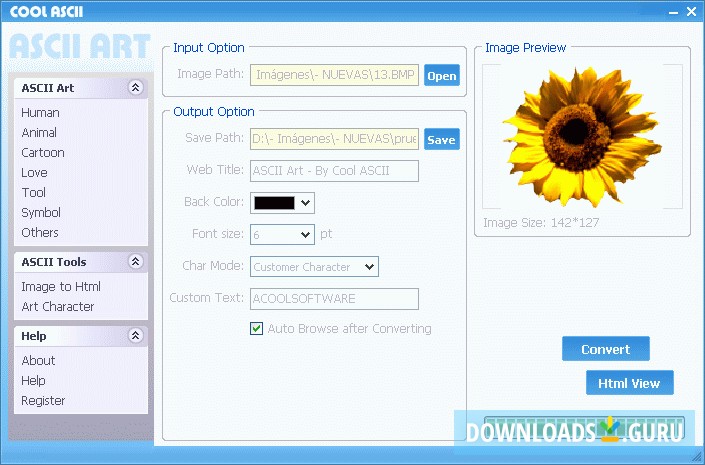
- #Ascii password creator how to#
- #Ascii password creator generator#
- #Ascii password creator code#
- #Ascii password creator password#
#Ascii password creator password#
Generate secure and strong random password automatically or according to your custom password policy with.
#Ascii password creator how to#
Thank you for reading, I would love to connect with you at Twitter | LinkedIn.Making a random password generator, and want to use the ascii strings, but do not know how to change from what I have so far to use the strings instead. Free Online strong and secure password generator. You can even make use of Python GUI using Tkinter. Making a random password generator, and want to use the ascii strings, but do not know how to change from what I have so far to use the strings instead. You can play around with the Instaloader library and even explore more features. I would strongly recommend you to Check out the YouTube video of the same and don’t forget to subscribe to my Channel. Simple, isn’t it? Hope this tutorial has helped.
#Ascii password creator generator#
Let’s have look at few sample outputs: #SAMPLE O/P: (length = 16) 3Atza*qP#h-vJoK+ 7c%A4gOt#M[}qr2 these steps, we have successfully created a random password generator project using python. all = string.ascii_letters + string.digits + string.punctuation pass = "".join(random.sample(all,length))įinally, let’s print the password! print(password)
#Ascii password creator code#
Now that you have a clear understanding of the script, we can even reduce the number of lines of code by eliminating the storage of data. We are passing in the combined data along with the length of the password, and joining them at the end. You can also convert from human readable text to ASCII code. temp = random.sample(all,length) password = "".join(temp) ASCII to Text converter is a tool to convert text to ascii code. Now that we have the data, let’s make use of random module to finally generate the password. Let’s combine the data and store the data. We have stored lowercase and uppercase letters along with numbers and symbols. lower = string.ascii_lowercase upper = string.ascii_uppercase num = string.digits symbols = string.punctuation We will make use of string module for the same. length = int(input('\nEnter the length of password: ')) Next, let’s ask the user for the length of the password. Once done, let’s greet the user! print('hello, Welcome to Password generator!') You can use the random number generator provided by the Go programming language to generate difficult-to-guess passwords comprised of ASCII characters. In order to access the Python library, we need to import the package in our Python script. You can find all the code at my GitHub Repository.

Now that you are familiar with password use cases and have acquired basic knowledge of random and string module, we can move forward to the coding section.

If you don’t want to repeat characters or digits in the random string, then use random.sample() but it is less secure because it will reduce the probability of combinations because we are not allowing repetitive letters and digits. random.sample() never repeats characters. If you will observe in the output all characters will be unique. So here is some totally random raw material, generated just for YOU, to start with. We are making use of random.sample module here. Generating long, high-quality random passwords is not simple. Random module is used to perform the random generations. numbers, and symbols (ASCII-standard characters only). If you wish to know more about it, you can refer to Password Wikipedia Page. A secure password and updated recovery info help protect your Google Account.

how to Create a Random Password GeneratorĪ password, sometimes called a passcode, is a memorized secret, typically a string of characters, usually used to confirm the identity of a user, In other words is a string of characters used to verify the identity of a user during the authentication process.


 0 kommentar(er)
0 kommentar(er)
